Why does Duncan Chase like working as lead bartender at Bon Appétit Management Company’s TASTE Restaurant? He says because hereally gets to have fun and be creative with the drinks he makes. At the Seattle Chef’s Collaborative Seasonal Cocktails Meet & Greet, hosted at the Mistral Kitchen Patio Rooftop recently, I got to try Duncan’s grappa cocktail. It was so delicious that I asked him to share his recipe with us. Here it is, including some of TASTE’s producers — the perfect late summer cocktail for this long weekend. Soft Tail Sparkling Sunset
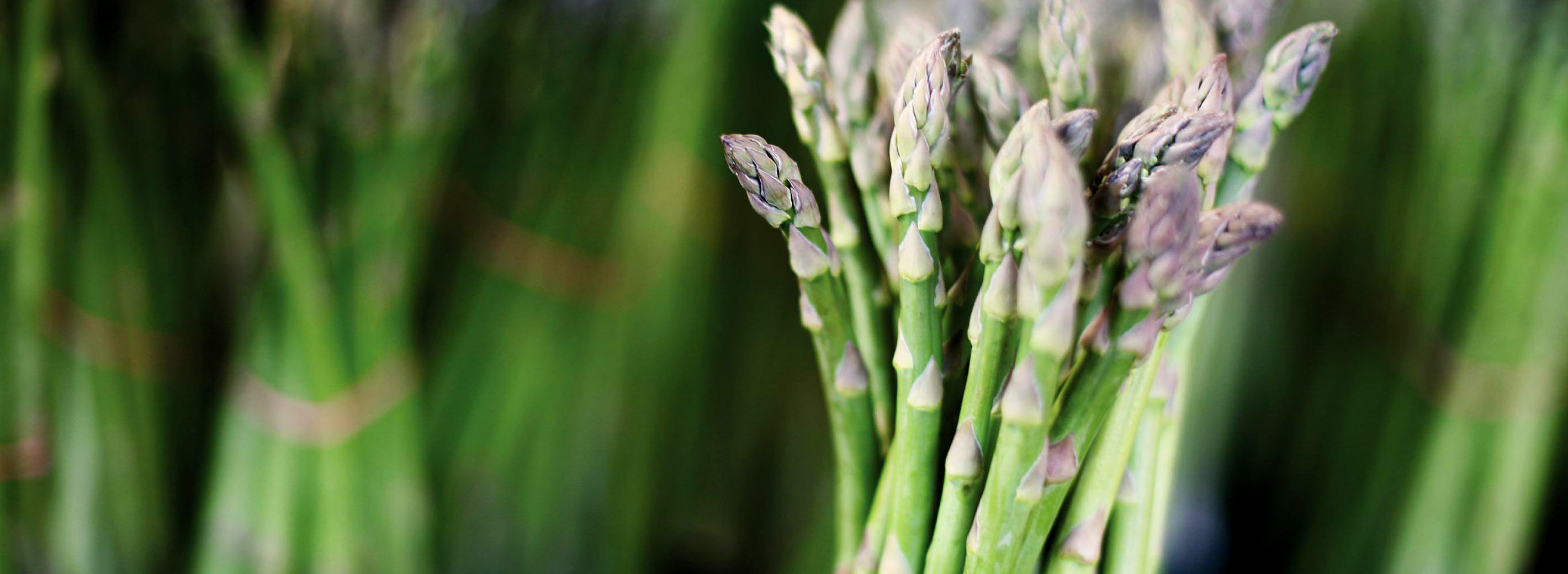
Blog: Farm to Fork
+ Blog Categories

Feeding our Soil and Communities: Visiting Shepherd’s Grain Co-op
- Blog
I eagerly returned for this summer’s eighth annual trip with other Bon Appétit staff to visit and dine with Shepherd’s Grain farmers in Washington State. On our excursion to Eastern Washington, Bon Appétit chefs, managers, and I visited the Spokane Hutterian Brethren Colony in Reardan, WA, where the Grosses, Hofers, and Walters uphold their collective 460-plus-year family tradition in farming, growing crops on 9,000 acres and living a self-sufficient lifestyle. I love this trip because – like many conscientious eaters today – I like to know where my food comes from. It’s a rare treat to be among 75 farmers and chefs who put the meaning of their work so eloquently into words.
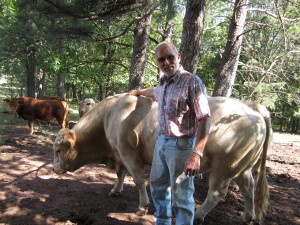
JuJo Acres: The Friendliest Cows Around
- Blog
When Jonas Stoltzfus of JuJo Acres in Loysville, PA, walked straight up to his non-castrated breeding bull and gave it a nice pat on the back, I knew I wasn’t on an ordinary farm.
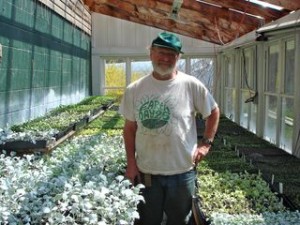
Meet Farmer Mike Tabor, School-Food Activist
- Blog
Mike Tabor, an activist-turned farmer, first realized the problems with the quality of food in our public school systems about 20 years ago. He has been working on farm to cafeteria legislation ever since, and started his own organic farm in Needmore, PA. He sells to Bon Appétit through our Farm to Fork Program.
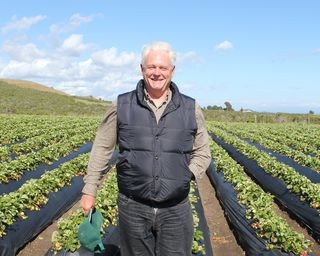
Advice for Young Farmers from Swanton Berry Owners
- Blog
Five tips for aspiring farmers on creating socially just farms, from Jim Cochran and Sandy Brown of California’s Swanton Berry farm, the “poster farm” of the fair-food movement.
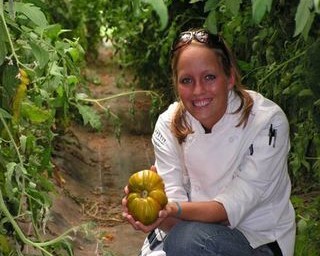
Penn Chefs Tour Local Farms and Markets
- Blog
Bon Appétit at the University of Pennsylvania in Philadelphia has been steadily increasing its purchases from local farmers ever since taking over the Penn account in 2009. But the busy chefs don’t always have the opportunity to venture outside of their kitchens and visit the producers. To provide chefs with a unique farmers’ perspective, as well as inspiration to purchase locally, Hill House Executive Chef Valerie McHugh has begun taking members of the Penn team on visits to local farms during school breaks.
Farming Without Soil: Hydro Harvest Farms’ Hydroponic Story
- Blog
Have you ever seen a farm that grows produce using minerals, nutrients, and water, but no soil? Bon Appétit Farm to Fork partner John Lawson of Hydro Harvest Farms is doing just that—and growing about six times more produce than the typical farm in the process, he says!
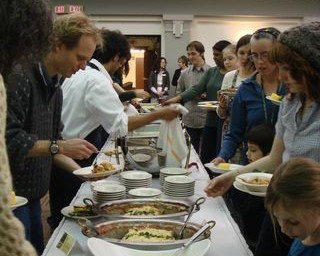
Oberlin Team Puts Together Local-Food Feast in Ohio — in March!
- Blog
Last fall, a group of student-activists and I had started coordinating Oberlin’s first-ever Food Week, to be held in March, to raise awareness about problems in our current food system and create a space for different activists to network and come to new solutions. To kick off the week, the students asked Bon Appétit to host a Local Foods Banquet. Let me repeat: they wanted to have a local foods banquet. In Ohio. In March. And we did it!
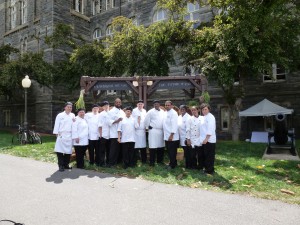
Local is the Future of Food for Washington Post Conference
- Blog
Bon Appétit chefs are used to cooking for business and academic royalty: CEOs, Nobel Prize-winning professors, and university presidents dine on our food daily. But when the company was invited to feed actual royalty — His Royal Highness the Prince of Wales, fresh from his son’s wedding — along with Bon Appétit CEO Fedele Bauccio, a dozen other stars of the sustainable food movement, and 750 journalists and other high-profile guests, the menu planning and food sourcing reached new heights of intensity.
The occasion was a landmark all-day conference on the “Future of Food,” hosted by the Washington Post at Georgetown University in Washington, DC.
Artisan Cheese Elevates an American Classic
- Blog
The grilled-cheese sandwich has come a long way; long gone are the days of butter-soaked white bread embracing a slice of American cheese. Entire restaurants dedicated to this comfort food have spring up. Recently, the Bon Appétit Cisco team in San Jose joined the celebration by highlighting the melty goodness of a well-made artisan grilled cheese in the cafés.
